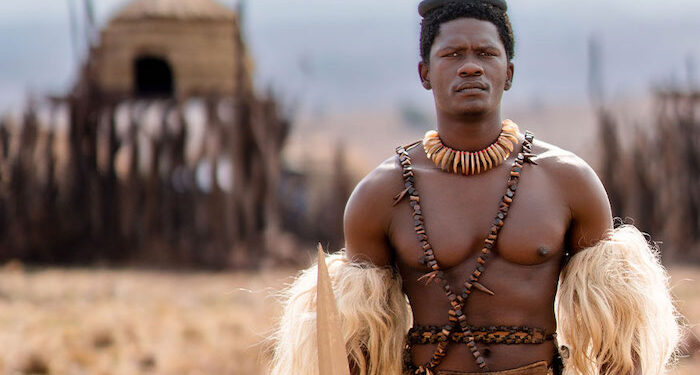Shaka Zulu is one of the most storied figures in South African history. Believed to have been born around 1787, the man also known as uShaka kaSenzangakhona is regarded as the founder of the country’s Zulu nation.
Shaka has been the subject of numerous novels, poems, films and TV series. Many have offered distorted versions of Zulu culture.
But the award-winning 2023 drama series Shaka iLembe seemed different. It was lauded by both critics and viewers for its epic storytelling and cultural authenticity. A second season of the series is now set to air.
As scholars of isiZulu (the Zulu language) and Zulu culture we decided to analyse the first season of uShaka iLembe to see how faithful it is to aspects of Zulu culture.
Zulu people are the country’s largest ethnic grouping, with almost a quarter of South Africans speaking isiZulu as a mother tongue. Shaka’s legacy remains significant in South Africa’s history, symbolising both strength and controversial authority. His story and customs are a marker of Zulu culture.
So can a series like Shaka iLembe serve as a way of preserving this rich culture and language? We found it used various aspects of Zulu language and dress in a way that’s not only authentic, but could be effective for preserving Zulu culture, especially for a new generation.
The series
The series traces the origins of its main character, King Shaka, and the various extraordinary events and experiences that characterised his life. Other important characters include his mother Nandi, his brother King Dingiswayo and their rival King Zwide, all authentic historical figures.
Although Shaka iLembe is designed for entertainment, the producers have always emphasised that it’s a true reflection of the era and of Zulu culture, even though some scenes are fictional. Even historians are unclear on many details of Shaka’s early life and character.
Shaka iLembe features popular local stars and high production values and is filmed in rich natural landscapes in KwaZulu-Natal province, where many Zulu people live. It took about six years to make and the writers consulted widely with cultural and historical experts (including the late King Goodwill Zwelithini and Prince Mangosuthu Buthelezi).
What really caught our interest was Shaka iLembe’s use of language and costumes.
Language
Language is not just a means of communication, it’s an organiser of knowledge and a mirror of culture. As a social behaviour it reflects people’s cultural, political, economic, religious and ethnic backgrounds. So language is an important tool of identity for any nation. The Zulu nation takes great pride in its language, demonstrated by the use of a wide range of techniques in both oral and written forms.
What’s particularly visible in the growth and spread of isiZulu is the richness of figures of speech – the artistic use of the language through things like proverbs and idioms.
In Shaka iLembe proverbs, idioms and respectful language are not just linguistic flourishes – they are powerful tools of cultural expression, storytelling and characterisation. They enrich the series and ground it in the traditions of the Zulu people.
Proverbs
A proverb is a wise saying that’s generally thought to be true. Many hands make light work. Or, in isiZulu, Izandla ziya gezana (Hands wash each other). Proverbs are common in African languages, passed on by word of mouth through oral traditions.
Zulu proverbs preserve traditional wisdom, beliefs and lessons. They can do many things – advise people on how to behave and treat one another to live well and harmoniously; what to do in good or bad situations; warnings about things to be careful of.
We found that proverbs are often used in Shaka iLembe and these add authenticity to the series while also keeping traditional wisdom alive for modern audiences.
In one episode, for example, Shaka is having a conversation about his father rejecting him. His aunt, Mkabayi, tries to console him by telling him to persevere and using a proverb: “insimbi ibunjwa ngokugazingwa” (difficulties are meant to make you strong).
The series shows how proverbs are deeply rooted in cultural contexts and cannot be fully grasped outside them. For example:
Shaka is speaking about an upcoming war and his mother Nandi says, “Ayihlome ihlasele. (Let it arm itself and attack.)” This saying means that his warriors should go ahead. She’s encouraging and supporting her son so he can be brave in battle.
Idioms
An idiom is a figure of speech that has a meaning of its own that can’t be understood from its individual words.
Wishing someone will “break a leg”, for example, is used in the theatre to wish someone good luck. There isn’t an isiZulu equivalent because idioms are bound by their culture and language.
But there are many isiZulu idioms and Shaka iLembe makes use of these too.
A narrator, for example, calls the land of the nearby Ndwandwe people a place “izwe elingafelwa nkonyane (where even a calf does not die)”. A fertile, bounteous place. “Siyinkukhu nempaka (we are chicken and wild cat)” is how the relationship between Zulu and Qwabe people is described. They are enemies because they are so different: predator and prey.
Hlonipha language
In Zulu culture, hlonipha refers to a system of respectful behaviour. Respect was of great importance during the reign of Shaka and still holds value today. It takes different forms – it can be expressed in dress, behaviour or the way people speak. Those who were particularly expected to show respect included brides or women.
Shaka iLembe taps into this system. When it comes to language, certain words are spoken in a respectful manner rather than being bluntly stated. Chief Mayinga, for example, refers to alcohol as amankwebevu (grey hair) instead of the more blunt word utshwala.
Attire
Nations have their own unique ways of dressing and Shaka iLembe has done everything possible to accurately showcase how Zulu people used to dress. Married women and maidens, for example, decorated themselves differently, allowing others to easily distinguish between the two.
The use of traditional Zulu clothing in the series also provides an opportunity to demystify colonial perspectives. Leopard skin attire, for example, was not worn by just anyone, as colonial depictions of the Zulu might show. Indeed, in Shaka iLembe, only King Shaka adorns himself with leopard skin because only royalty was allowed to. It distinguished a king from ordinary people.
Why this matters
Since television is especially popular in urban areas and particularly among young people, it can play an important role in preserving culture for future generations.
TV has an impact on social behaviour – what is seen and heard on screen is often copied in real life. A series like Shaka iLembe helps to preserve isiZulu in a time of social media, shifting language use and the marginalisation of many indigenous African languages in social, economic and educational spaces.
Our study recommends an increased use of indigenous languages like isiZulu in the entertainment space, where Shaka iLembe shows that it can be a source of preservation and pride.
Postgraduate students Sibusiso Xhakaza, Nontobeko Ngqulunga and Lungile Mkhwanazi contributed to this research![]()
Bongephiwe Dlamini-Myeni, Senior Lecturer, University of Zululand
This article is republished from The Conversation under a Creative Commons license. Read the original article.














